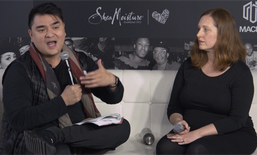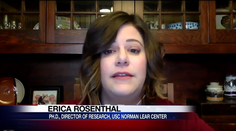|
Define American published a report, Change the Narrative, Change the World 2022, based on their third research partnership with the Media Impact Project. Our researchers analyzed 167 immigrant characters across 169 episodes of 79 scripted series that aired between July 1, 2020, and June 30, 2022. We also conducted an audience survey to examine the impact of four TV series on attitudes toward immigrants and immigration.
Findings suggest immigrant representation on television has shifted in important ways — both positive and negative. Read Define American's report. |
|
Our second study with Define American finds that TV shows with nuanced immigrant characters and immigration storylines can shift attitudes and inspire people to real-life action. Viewers who saw the immigrant storyline had more inclusive attitudes towards immigrants, greater comfort meeting undocumented people and opposition to criminalizing undocumented immigrants. They were also more likely to take certain actions, like speaking to a friend about immigration issues or attending an immigration-related community event.
Read the report. |
|
IMMIGRATION NATION:
EXPLORING IMMIGRANT PORTRAYALS ON TELEVISION In our initial study in collaboration with Define American, our research team conducted a media content analysis to answer two questions:
The analysis examines the demographic, socio-economic, and social representations of immigrant characters depicted, as well as the context and use of any culturally- or politically-charged terms relating to immigration in 143 episodes of 47 television shows that aired in 2017 and 2018. Read the report. Read the key findings. |
|
ATX 2022. Telling Authentic Immigrant Stories on Television
Creatives Linda Yvette Chávez (Gentefied), Miranda Kwok (The Cleaning Lady), Melvin Mar (Fresh Off the Boat), and Mike Gauyo (Send Help) discussed their respective journeys bringing nuanced immigrant characters to life on screen, and the need for authentic storytelling spanning a range of immigrant experiences. The panel was moderated by Define American's Charlene Jimenez and presented in partnership with our Hollywood, Health & Society program. This conversation was originally recorded at ATX TV Festival Season 11 in June 2022. Listen to the conversation. |



|
The Norman Lear Center's Media Impact Project researches how entertainment and news influence our thoughts, attitudes, beliefs, knowledge and actions. We work with researchers, the film and TV industry, nonprofits, and news organizations, and share our research with the public. We are part of the University of Southern California's Annenberg School for Communication and Journalism.
|
|
